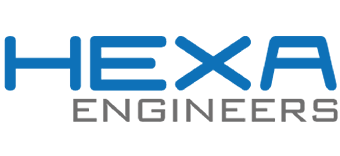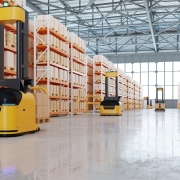Automation does not destroy jobs
Thanks to its important benefits, the use of automation has grown not only in the most productive sector but also in companies dedicated to services, as well as in administrative entities. In fact, specialists are not wrong in stating that within a decade automation and artificial intelligence will have impacted almost all markets, sectors and professions.
However, one question lies with many people: will automation destroy jobs? The answer is simple. No, automation will not destroy jobs, it is a misconception. But this does not mean that automation will not impact the labor market and we will explain what these new changes will be like.
The fear of unemployment as a result of advances in science and technology is not new. At the beginning of the 19th century, a group of English artisans rebelled against the new inventions that industrialization brought. The story goes that these workers destroyed machines and started fires in the factories. It was a tremendous attack on development, but still they failed to stop it.
On the contrary, automation not only improves efficiency and reduces costs, but also entities become more competitive, which has an impact on employment: growing more often recruits more staff, but more qualified workers in areas of vital importance in the company.
Also in many cases, automation frees workers from repetitive and dangerous tasks, allowing them to focus on the most valuable and challenging tasks. That is why digital transformation, instead of being considered a threat, should be understood as something that has come to complement, to improve exponentially and even to create new needs and jobs.
Automation makes tasks more bearable and also allows greater efficiency in terms of costs and time. Technology accompanies the growth and even the expansion of companies and businesses. These are some of the ways in which automation can help improve work in industries and companies in various ways:
Increased safety at work
As we have previously explained, automation can free workers from dangerous and repetitive tasks, improving safety in the workplace.
Improvement of the quality of working life
By freeing workers from repetitive tasks, automation can improve the quality of work life and allow workers to focus on more challenging and rewarding tasks.
Continuous improvement
It is common to hear from many workers that monotony predominates in their current jobs and they do not perceive an intellectual growth with the work they do in their entity. However, thanks to automation, all the personnel that work in an entity require training in new skills, that is, training focused on the most demanded skills in the industry to be able to use technology properly. And since this changes from time to time, people will need constant training to be able to be in line with the new changes.
The most in-demand job skills

It is no less true that, on the other hand, automation can reduce the need for labor in certain jobs, which can result in job losses in some sectors. In fact, according to the most recent experience, everything indicates that the jobs most affected by the impact of technology will be the least qualified jobs and the professionals who show less training capacity in the face of technological challenges. There are also positions related to sales, financial and business operations, administration and office tasks that will be impacted by the automation of many of the processes that are currently labor intensive.
Therefore, it is important to carefully consider the impact of automation on employment and work to ensure that people are properly trained so that they gain access to solid job opportunities. This, of course, will have to be a joint effort between governments and companies to mitigate the impact. This can include investing in training, both for the youngest and most experienced people in the sector, and developing skills to adapt to the new demands of the labor market.
It is also true that automation will never get it all done. For example, it is not capable of being creative or empathetic and that is why our entities will always need the work of professionals. What is lived today is rather a transition towards a world of work where human workers are going to concentrate on the tasks with the greatest added value and therefore they will need to have the best qualities for it.
For example, specialists in the workplace predict the emergence of new, more specialized profiles and, of course, professionals will need a new set of skills to carry them out. Also beyond technological skills, it is estimated that some of the most demanded skills will be soft skills, such as critical thinking, creativity and emotional intelligence.
But there is no doubt that some of the jobs most in demand and that will continue to grow constantly will be data analysts, those in charge of design, critical thinking, social intelligence, as well as programmers and software developers. In the case of the former, automation can generate a large amount of data, so skills are required to analyze and make decisions based on this information. The professionals most in demand by companies will also be those capable of working on projects, leading teams, with communication skills and initiatives for innovation and who adapt quickly to changing times. The ability to solve problems and creativity will also be highly valued.









